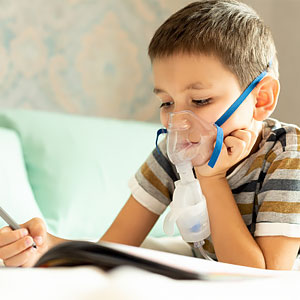| Theme : Animals like .... LESSON: 2 Greetings. | School:Kainazar 1 primary school | |||||||
| Date:03.04.2019 | Teacher name: Bakytzhan Daniya | |||||||
| CLASS: 1 | Number present: | absent: | ||||||
| Learning objectives(s) that this lesson is contributing to | 1.S5 produce words in response to prompts, 1.L3 recognise with support simple greetings recognise the spoken form of a limited range of basic and everyday classroom words, 1.S1 make basic personal statements and simple statements about objects. | |||||||
| Lesson objectives | All learners will be able to: | |||||||
| ||||||||
| Most learners will be able to: | ||||||||
| ||||||||
| Some learners will be able to: | ||||||||
| ||||||||
| Previous learning | personal pronoun they present simple forms: eat, like; short forms: do | |||||||
| Assessment criteri | Learners can produce words in response to promots,learners can recignise with simple greeting ,recognize the spoken foem of a limitedrange ofbasic and everyday classroom words,learners can make basic personal statements and simple statements about objects. | |||||||
| Value links | to be polite and respectful to each other | |||||||
| Cross curricular links | Kazakh language,Russian language. | |||||||
| ICT | Video,smart board.laptop | |||||||
| Plan | ||||||||
| Planned timings | Planned activities (replace the notes below with your planned activities) | Resources | ||||||
| start 2 minutes
| GREETING Hello, children! How are you? WARMING UP Pupils choose one of the pictures and say about them (I like…/ I don’t like…) and they are divided into 3 groups by
|
| ||||||
| Main part of the lesson 35 minutes | Pupils watch and listen to the video and sing a song together. Teacher demonstrates how to pronounce new words on flashcards: grass, meat, cows, bears, leaves, rabbits, bugs. Teacher asks pupils to close their eyes and hide one of the pictures, pupils find what is missing. Listen to the audio. Teacher demonstrates what learners have to do with a model question. Teacher then asks about animal food e.g. Do cats like milk? Do cows eat eggs? repeating each question and learners answer yes or no. Teacher encourages learners to answer Yes they do/No they don’t. Do dogs like grass? Do horses eat birds? Do cats like milk? Do bears like bugs? Do cows eat eggs? Do mice like cheese? Do cows eat grass? Do monkeys eat Do rabbits eat carrots? bananas? Do You Like Broccoli Ice Cream - Super Simple Songs GROPWORKING Divide the class into three teams for an animal food quiz. Ask a question and show visual of animal:What do spiders like/eat? Are you tired? PHYSICAL ACTION I’m a big big cat, I’m a little little, mouse, Big little, big little, Clap! Clap! Clap! I’m a big big gorilla, I’m a little little ant, Big little, big little, Clap! Clap! Clap! I’m a big big shark, I’m a little little frog, Big little, big little, Clap! Clap! Clap (f) Pupils are given worksheets. Teacher reads out each question about animal food e.g. Do cats like milk? Do cows eat eggs? repeating each question twice and learners circle the correct answer Yes, they do or No, they don’t on their answer sheet. |
Pictures of grass, fish, meat, cows, bears, leaves, rabbits, bugs etc.
CD Track 45
A set of animal visuals / flashcards to project
| ||||||
| 3 minutes | REFLECTION Teacher gives the comments about pupils’ work and awards them. What is difficult for you? What is interesting for you? |
| ||||||
| Additional information | ||||||||
| Differentiation – how do you plan to give more support? How do you plan to challenge the more able learners? | Assessment – how are you planning to check learners’ learning? | Cross-curricular links | ||||||
|
|
| ||||||
| Reflection Were the lesson objectives/learning objectives realistic? What did the learners learn today? What was the learning atmosphere like? Did my planned differentiation work well? Did I stick to timings? What changes did I make from my plan and why? | Use the space below to reflect on your lesson. Answer the most relevant questions from the box on the left about your lesson. | |||||||
| Summary evaluation What two things went really well (consider both teaching and learning)? 1: 2: What two things would have improved the lesson (consider both teaching and learning)? 1: 2: What have I learned from this lesson about the class or individuals that will inform my next lesson? | ||||||||

 Получите свидетельство
Получите свидетельство Вход
Вход











 "Sea adventures" (39.53 KB)
"Sea adventures" (39.53 KB)
 0
0 473
473 17
17 Нравится
0
Нравится
0









